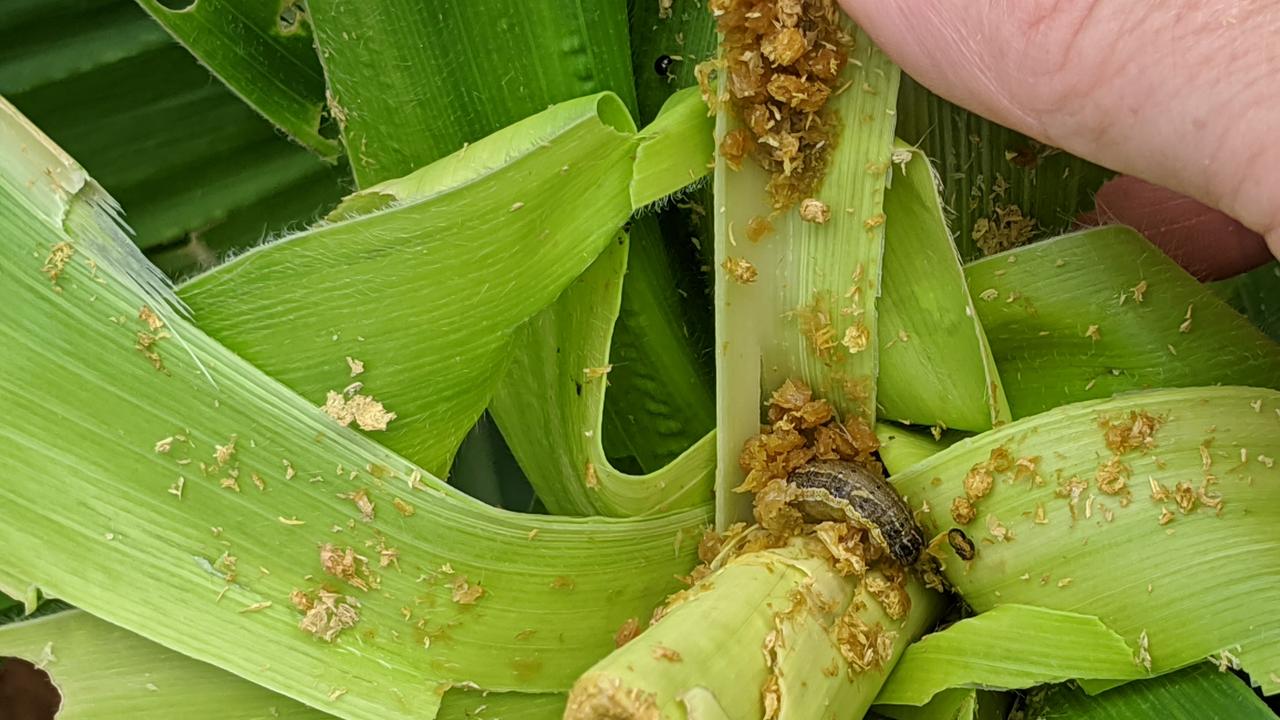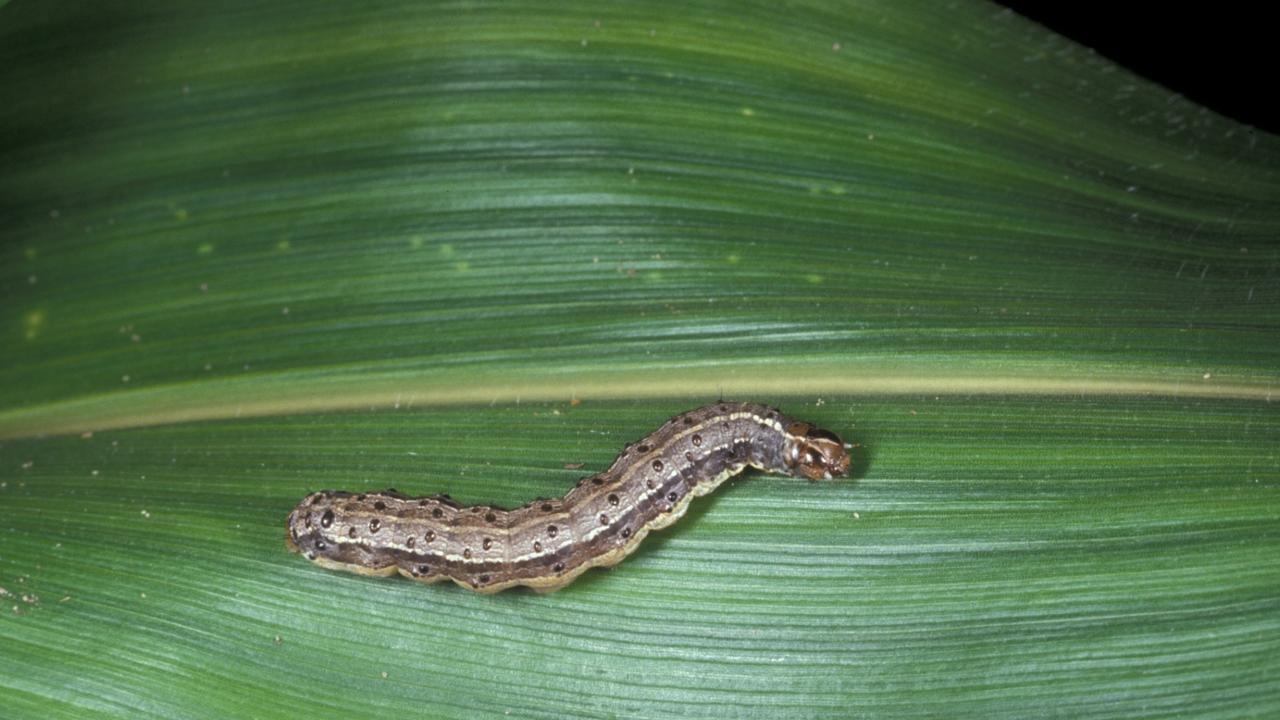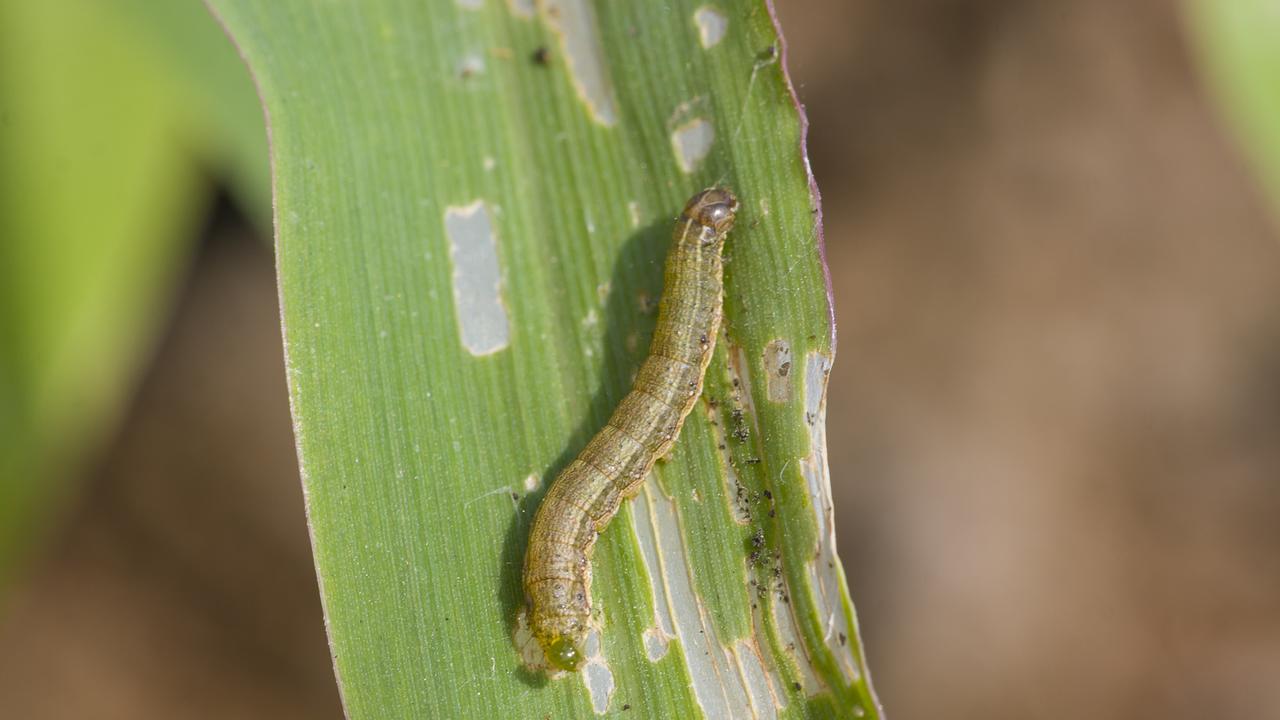Groundbreaking: Pesticide solution to grower’s problems
BFVG’s Bree Grima encourages growers to continue conducting regular checks of their crops for unusual pest activity

Business
Don't miss out on the headlines from Business. Followed categories will be added to My News.
Plans to import a biopesticide from overseas are in motion, in a bid to solve one of the growing pest problems for farmers in the Bundaberg and Burnett regions.
Sightings of the fall armyworm (FAW) were first reported in Australia, in January last year and until now, no imminent solutions had been found to combat the invasive pest.
Bundaberg Fruit and Vegetable Growers (BFVG) managing director Bree Grima said she encourages growers and agronomists to conduct regular checks of their crops for unusual pest activity.
"There has been significant pest activity for FAW in recent months particularly with sweet corn crops but as these crops have nearly finished, we may see some relief, however it continues to be present in sorghum crops," Ms Grima said.
"Given we don't yet know the full extent of its preferred hosts (ie whether it will have a big impact on melons for example) growers will need to continue to monitor crops closely."

After first applying in March to import Fawligen, a biopesticide produced in the U.S, by Australian owned AgBiTech, into Australia, the Department of Agriculture and Fisheries (DAF) has now received approval to do so.
Minister for Agricultural Industry Development and Fisheries and Minister for Rural Communities Mark Furner said Fawligen
"Since the initial detection of FAW in Australia in January 2020, DAF has worked closely with industry to find ways to address the threat posed by this voracious invasive pest to Queensland's agriculture industry," Mr Furner said.
"Fawligen is a biopesticide targeting the FAW caterpillar which ingests virus particles, becomes infected and dies, spreading the virus to other FAW larvae in the crop.
"Getting the Federal Department of Agriculture, Water and the Environment's approval to import Fawligen, a naturally occurring caterpillar virus which targets FAW, is a key step forward as it has the potential to be a game changer for producers."
Mr Furner said having access to the pesticide would allow DAF researchers to generate information which will be submitted to the Australian Pesticides and Veterinary Authority.
"Natural biological control agents, like Fawligen, reduce grower reliance on conventional insecticides for FAW control, reducing the risk of insecticide resistance development," he said.
"Another significant advantage of this biopesticide is that it only kills the FAW and is non-toxic to beneficial organisms including honeybees and beneficial natural enemies such as spiders, wasps and ladybeetles."

AgBiTech general manager Philip Armytage said the organisation began manufacturing the pesticide product in the U.S in 2015, to combat the global pest in areas including Brazil and other international markets.
"At the time, Fawligen could not be produced in Australia as the FAW was not present," Mr Armytage said.
"Globally, Fawligen is AgBiTech's biggest product by volume, and we are excited to be able to bring our technology back home to Australia for our farmers."
But it's the not the first time DAF has worked alongside AgBiTech, joining forces in the early 2000s to control other caterpillar pests including the Helicoverpa, as well as silverleaf whitefly and prickly pear.
The Queensland Government is now in the process of creating management packages to assist impacted industries and areas.
For more information and advice, visit business.qld.gov.au/fallarmyworm.







